WWF Österreich. "Appell der Wirtschaft an die künftige Bundesregierung". WWF Österreich. Accessed November 05, 2024. https://www.wwf.at/... (Contributed by Gregory Autin).
 Die zunehmenden Schäden und Kosten der Erderhitzung und der großflächigen Zerstörung von Ökosystemen werden durch europaweite Krisen verstärkt. Daraus ergeben sich massive ökonomische, soziale und ökologische Folgen. Rasches und kontinuierliches Handeln ist eine Voraussetzung für den künftigen Erfolg des Wirtschaftsstandorts Österreichs. Nicht-Handeln hingegen zerstört Marktchancen und Arbeitsplätze. Vieles hängt daran, ob wir das Ziel der Klimaneutralität 2040 erreichen. In einem gemeinsamen Appell fordern 125 heimische Unternehmen die künftige Bundesregierung dazu auf, für Kontinuität in den politischen Zielen, Gesetzen und Förderungen zu sorgen. So entsteht ein dringend notwendiger und verlässlicher Rahmen für Planungs- und Investitionssicherheit sowie faire Wettbewerbsbedingungen.
Die zunehmenden Schäden und Kosten der Erderhitzung und der großflächigen Zerstörung von Ökosystemen werden durch europaweite Krisen verstärkt. Daraus ergeben sich massive ökonomische, soziale und ökologische Folgen. Rasches und kontinuierliches Handeln ist eine Voraussetzung für den künftigen Erfolg des Wirtschaftsstandorts Österreichs. Nicht-Handeln hingegen zerstört Marktchancen und Arbeitsplätze. Vieles hängt daran, ob wir das Ziel der Klimaneutralität 2040 erreichen. In einem gemeinsamen Appell fordern 125 heimische Unternehmen die künftige Bundesregierung dazu auf, für Kontinuität in den politischen Zielen, Gesetzen und Förderungen zu sorgen. So entsteht ein dringend notwendiger und verlässlicher Rahmen für Planungs- und Investitionssicherheit sowie faire Wettbewerbsbedingungen.
Posted on 27/11/24
Recent Abstracts
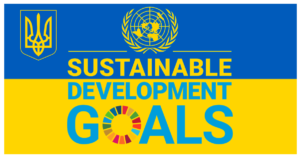
UN System Introduces Online Platform for Reporting on Sustainable Development Goals Indicators in Ukraine
At the end of 2021, Ukraine joined the Open SDG platform for monitoring and reporting on the country's progress in implementing the sustainable development goals (SDGs). With the support of the UNEP Joint SDG Fund, the platform provides access to national SDG implementation indicators for the government and the world c ...
Posted on 01/03/22

The Smart City Hospitality Framework: Creating a Foundation for Collaborative Reflections on Overtourism That Support Destination Design
The Smart City Hospitality Framework can serve as the foundation for a destination-design-driven approach to urban tourism governance and dealing with overtourism. It is intended to stimulate collaboration on solutions to overtourism and urban tourism development and facilitate discussing and analyzing the relationshi ...
Posted on 26/02/22

The Circularity Gap Report 2022
We consume 70% more than what the earth can safely replenish and only 8.6% of what we use is returned to the economy. Rather than rectifying this, global circularity decreased from 9.1% in 2018 to 8.6% in 2020. Increasing levels of waste accompany the rapid acceleration of consumption, leaving a massive circularity g ...
Posted on 24/02/22
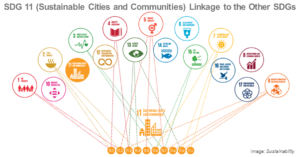
SDG Indicators for Municipalities
Sustainability calls for planning and action that can be implemented and shaped according to measurable criteria. Municipalities play a central role in achieving the sustainability goals set out in the United Nations’ 2030 Agenda – the Sustainable Development Goals (SDGs) – and can contribute significantly to a sustain ...
Posted on 22/02/22
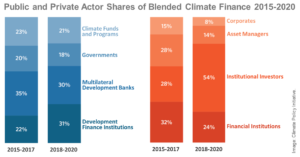
Making the Business Case for Climate Smart Investments: Guidelines for the Tourism Sector
The transition of tourism to net-zero emissions will require significant investment and innovation by the businesses and other stakeholders. UNEP recently launched this initiative to support the urgent transition, which is aimed to address challenges that the private sector faces in financing climate mitigation actions ...
Posted on 19/02/22

Destination 2030: Global Cities’ Readiness For Tourism Growth
City planning authorities, developers, investors, legislators, and community groups have to collaborate to prepare cities for growth in tourism. Decision-makers create long-term plans involving all stakeholders, where local residents must be at the heart of the infrastructure developments and investments. The decisio ...
Posted on 18/02/22
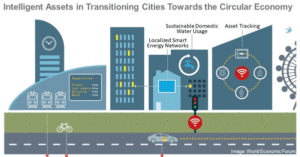
Circular Cities: An Evidence Map of Research between 2010 and 2020
Cities are increasingly transitioning towards the circular economy (CE). They are moving towards a sharing economy and implementing CE strategies to reduce their use of resources and environmental impact. The efforts of municipalities concentrate chiefly on the "lower-level" waste and wastewater management and recycl ...
Posted on 16/02/22
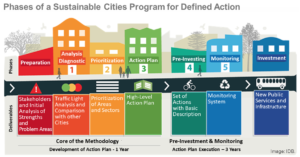
The SDGs in Austrian Cities: A Comparison between 2017 and 2021
Cities play a key role in implementing the UN Sustainable Development Goals (SDGs) and need clear roles and responsibilities on regional policy issues. Transparency, sufficient access to information, and coordination between all stakeholders in the sustainable development of communities are required for the cities to ...
Posted on 14/02/22
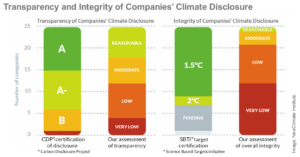
Corporate Climate Responsibility Monitor 2022
Most large companies now have public climate strategies and targets, many of which include pledges that appear to significantly reduce or even eliminate their contributions to global warming. The acceleration and spread of corporate climate pledges makes it increasingly difficult to distinguish between true climate le ...
Posted on 12/02/22
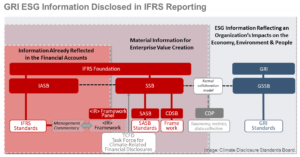
A Business Case for Environment & Society
The need for standardized, comparable information to enhance decision-making by shareholders and stakeholders has accelerated with the great increase in ESG investments, rankings, and exchange-traded funds. Sustainability reporting, which focuses on disclosing companies' environmental, social, and governance (ESG) imp ...
Posted on 11/02/22

Decarbonizing Construction – Guidance for Investors and Developers to Reduce Embodied Carbon
A large part of the construction sector’s emissions come from building products and materials – embodied carbon. Embodied carbon has become the focus of regulatory bodies, making it a risk factor for developers and investors to price into construction projects. This report is for developers and investors, who drive t ...
Posted on 09/02/22
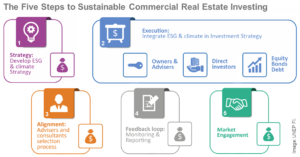
Climate Risk & Commercial Property Values: A Review and Analysis of the Literature
This is a forward-looking climate risk analysis and assessment of the impact of climate risk on commercial property investments through pricing, CapEx or OpEx decisions. The study sought to understand the extent to which real estate markets price in the risks from extreme weather and climate change and the channels th ...
Posted on 07/02/22
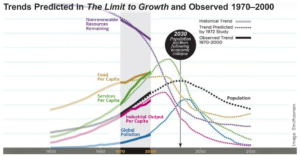
The Real Message of 𝘛𝘩𝘦 𝘓𝘪𝘮𝘪𝘵𝘴 𝘵𝘰 𝘎𝘳𝘰𝘸𝘵𝘩 – A Plea for Forward-Looking Global Policy
The Limits to Growth (LtG) published in April 1972, called for managing the reduction of resources used in economic development. It warned that overshoot will be caused by significant institutional delays in decision-making and showed how the equilibrium between remedial action and ecosystem improvement could be achie ...
Posted on 05/02/22

Building Information Modeling for Environmental Impact Assessment in Early Design Phases: A Literature Review
Building information modeling (BIM) and building energy modeling (BEM) are two key tools for transitioning to net-zero energy buildings (NZEBs). This review discusses the connection between BIM, BEM and life-cycle assessment (LCA) and their role in the development and operation of net-zero carbon (NZC) buildings. It ...
Posted on 04/02/22
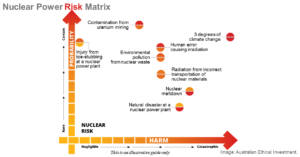
Potential Liability of Governments for Failure to Prepare for Climate Change
This paper examines the potential legal liability of governments by accumulating risks of climate change. It addresses negligence, fraud, and takings, describing the benefits and challenges of each, and explores ways to overcome a government’s claim of sovereign immunity in the context of a negligence claim. It descr ...
Posted on 03/02/22

